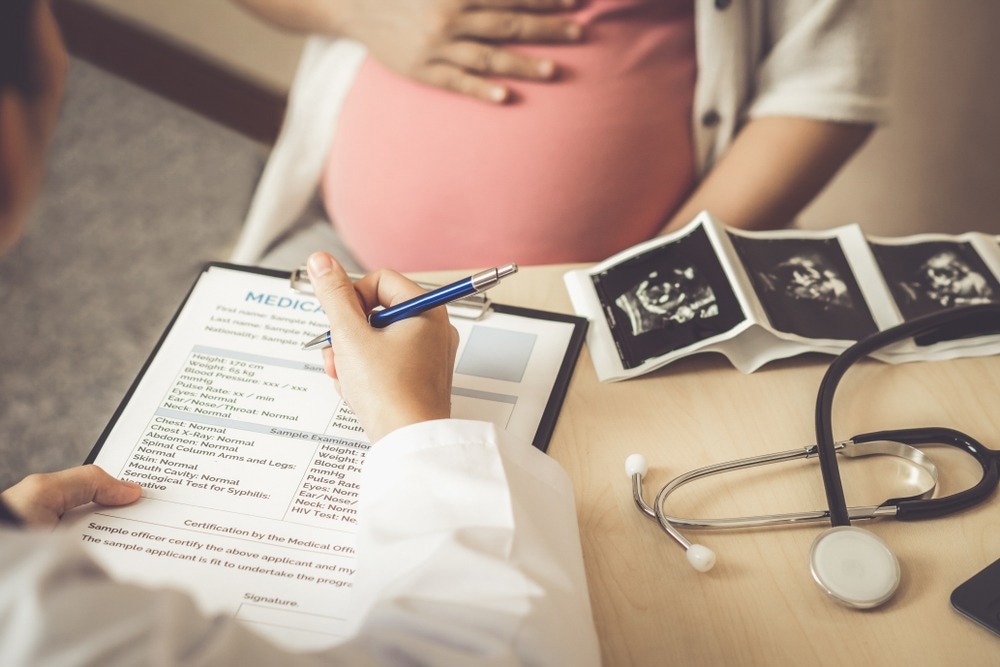Qiaolin Deng: I am an Associate Professor and Ph.D. with training in developmental biology and single-cell sequencing technology. Since setting up The Deng lab, I have been very interested in the developmental origin of health and disease. I particularly want to understand the role of germline transmission and the effects of the uterine environment.
In polycystic ovary syndrome (PCOS) the ovaries produce too much of the sex hormone testosterone. What is the global incidence of this disease, and how does it impact the lives of affected women?
PCOS affects approximately 15% of women of reproductive age worldwide. It is diagnosed when two of three criteria are met: polycystic ovarian morphology, oligo/anovulation, and clinical or biochemical hyperandrogenism. Women with PCOS have reduced fertility, and when pregnant, the condition is linked to early miscarriage, preeclampsia, and gestational diabetes.
Moreover, PCOS is strongly linked to comorbidities such as insulin resistance, type 2 diabetes, fatty liver, endometrial cancer, as well as psychiatric ill-health with a high incidence of anxiety and depression disorders, body dysmorphia, and reduced health-related quality of life.

Image Credit: Orawan Pattarawimonchai/Shutterstock.com
What was the understanding of how PCOS impacts the health of offspring of PCOS-affected mothers, and what questions remained that you sought to answer?
We have previously demonstrated that daughters of women with PCOS are five times more likely to develop the syndrome. Pregnant women with PCOS have high levels of circulating androgens, thereby increasing the supply of androgens to the fetus.
Recently, we demonstrated that PCOS-like traits, induced by exposing pregnant mice to dihydrotestosterone (DHT), are passed on from mothers (F0) to daughters (F1), granddaughters (F2), and even to great-granddaughters (F3) (Nature Medicine, 2019). Moreover, this transmission was accompanied by transcriptional and mitochondrial perturbations of oocytes. Importantly, several of the transcriptomic signatures were also detectable in blood from daughters of women with PCOS, supporting a role for epigenetic inheritance of the syndrome in humans.
To what extent sons of women with PCOS and male mouse offspring of mice with PCOS-like traits are affected was less known.
Please could you briefly detail how you conducted your research and describe your main findings?
In a longitudinal case-control study, we show that sons of women with PCOS have higher circulating cholesterol and LDL-cholesterol than control sons. Moreover, in a register-based study, sons of mothers with maternal obesity have higher BMI and larger waist circumferences than sons of mothers with BMI <25. The prevalence of overweight and obesity was higher in those children born to mothers with BMI>25 during pregnancy.

Image Credit: Blue Planet Studio/Shutterstock.com
We used our previously validated mouse models to investigate whether first-generation (F1) male offspring that were directly exposed to diet-induced maternal obesity, prenatal androgens (DHT), or the combination of the two exposures could develop reproductive and metabolic traits in adult males and if such traits are passed on to F2 (direct germline exposure, i.e., intergenerational) and F3 (transgenerational) male offspring.
We show that altered reproductive (testis and sperm mitochondrial) functions are transmitted across generations in male offspring of the obese lineage. There is a strong and belated effect in third-generation male progeny in the combined obese and androgenized lineage. The metabolic dysfunction (fatty liver, increased fat mass, adipocyte size, altered energy expenditure) as an effect of prenatal androgen exposure and maternal obesity is transmitted across generations, whereas the transgenerational effect in the combined obese and androgenized lineage is less pronounced.
Health conditions disproportionately impacting a specific sex are often categorized as "Men's/Women's Health." What do your findings mean for this way of categorizing health conditions, especially in the case of PCOS?
It means that if both men and women are affected by exposure to excess androgen in utero, PCOS is far more prevalent and has a broader impact on both women's and men's health than previously appreciated.
Given the effect that the mother's diet during pregnancy had on the fat distribution and metabolism of male offspring, do you hypothesize that there is an epigenetic cause?
Yes, as we used pure genetic background wild-type mice to exclude the effects of genetic cause. Our experimental design combining a diet-induced obesity mouse model with a prenatal androgen exposure mouse model allows us to study epigenetic causes.
Given that PCOS is a condition that can make it difficult to get pregnant in the first place, how may your findings influence lifestyle guidance for pregnant women with PCOS?
It raises the importance of lowering circulating androgens and reducing weight (if overweight/obese) before pregnancy. The first line of treatment is lifestyle management (diet and exercise). Importantly, only a few kilograms of weight reduction can improve symptoms. We see strong effects of maternal obesity on sons of women with PCOS, further highlighting the importance of weight control during pregnancy.
What is the significance of your findings, and how do you hope they will aid in future ways of identifying, treating, and preventing reproductive and metabolic diseases at an early stage?
Our comprehensive analyses have defined long-term adverse effects of obesity and prenatal androgen excess during pregnancy leading to transgenerational transmission of metabolic and reproductive traits in male progeny and epigenetic modifications in the sperm accompanying the phenotype transmission across generations. Several of the epigenetic signatures in mouse sperm were detected in serum of PCOS-sons strengthening the translational significance. The transgenerational transmission of reproductive and metabolic alterations across generations via the male germline in our mouse models shed light on a previously underappreciated risk of transmission.
What is next for you and your research?
We hope to identify biomarkers, allowing early detection of boys (and girls) at risk, enabling prevention, and opening new horizons for treatment strategies rather than managing symptoms, thereby reducing the burden of disease in both women and men.
Where can readers find more information?
Please provide links to any materials that may be relevant to our audience.
About the Elisabet Stener-Victorin
Over the past decade, she has established herself as one of the leading international scientists in the field of polycystic ovary syndrome (PCOS) and is currently ranked 8th on the global expert list.
 Her team is leading the way in linking preclinical and clinical investigations of PCOS, the most common endocrine and metabolic disorder in women, which is associated with several serious conditions such as type 2 diabetes, endometrial malignancies leading to pregnancy complications, and anxiety and depression. Her work has unique aspects ranging from molecular studies to clinical applications in the field of reproductive endocrinology and metabolism. In recognition of this, she received the highly prestigious Distinguished Investigator Grant (2022), 10 MDKK, from the Novo Nordisk Foundation Research Leader Program.
Her team is leading the way in linking preclinical and clinical investigations of PCOS, the most common endocrine and metabolic disorder in women, which is associated with several serious conditions such as type 2 diabetes, endometrial malignancies leading to pregnancy complications, and anxiety and depression. Her work has unique aspects ranging from molecular studies to clinical applications in the field of reproductive endocrinology and metabolism. In recognition of this, she received the highly prestigious Distinguished Investigator Grant (2022), 10 MDKK, from the Novo Nordisk Foundation Research Leader Program.
About Qiaolin Deng
She is Wallenberg Academy fellow in medicine since 2019, a distinguished national scientific program to support young promising researchers. Her lab is studying the specification of the germline and their role in epigenetic inheritance. Particularly, how maternal health programs the fetal development and predisposes the offspring to certain health outcomes later in life such as metabolic diseases and mental illness. Her research is supported by several consolidating grants including Swedish Medical Research council consolidator grant (2021-2026), and 12MSEK.
